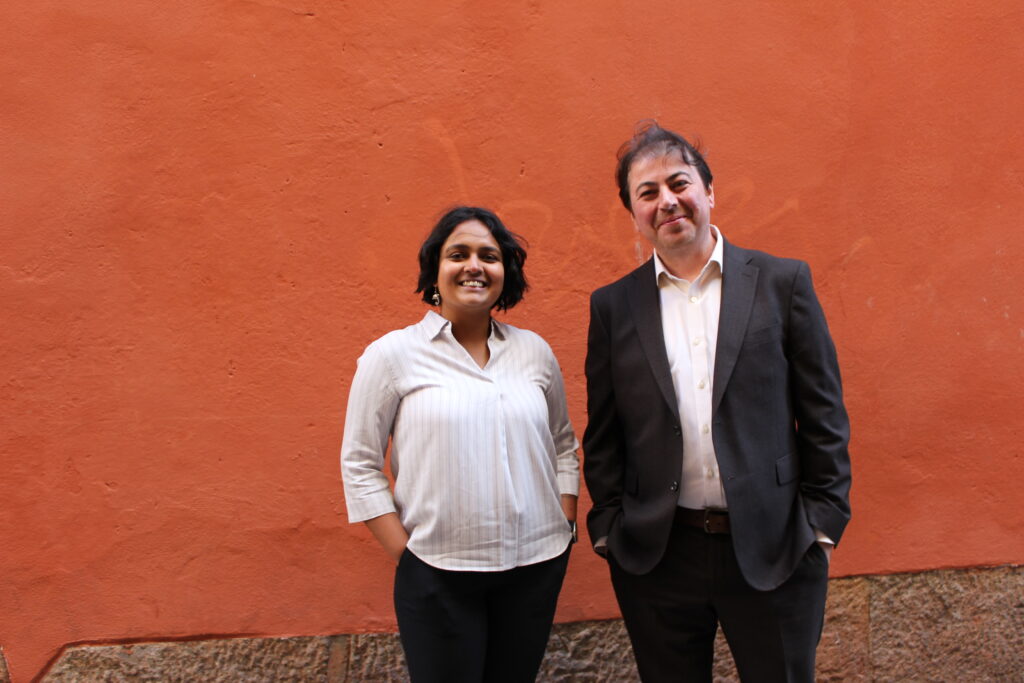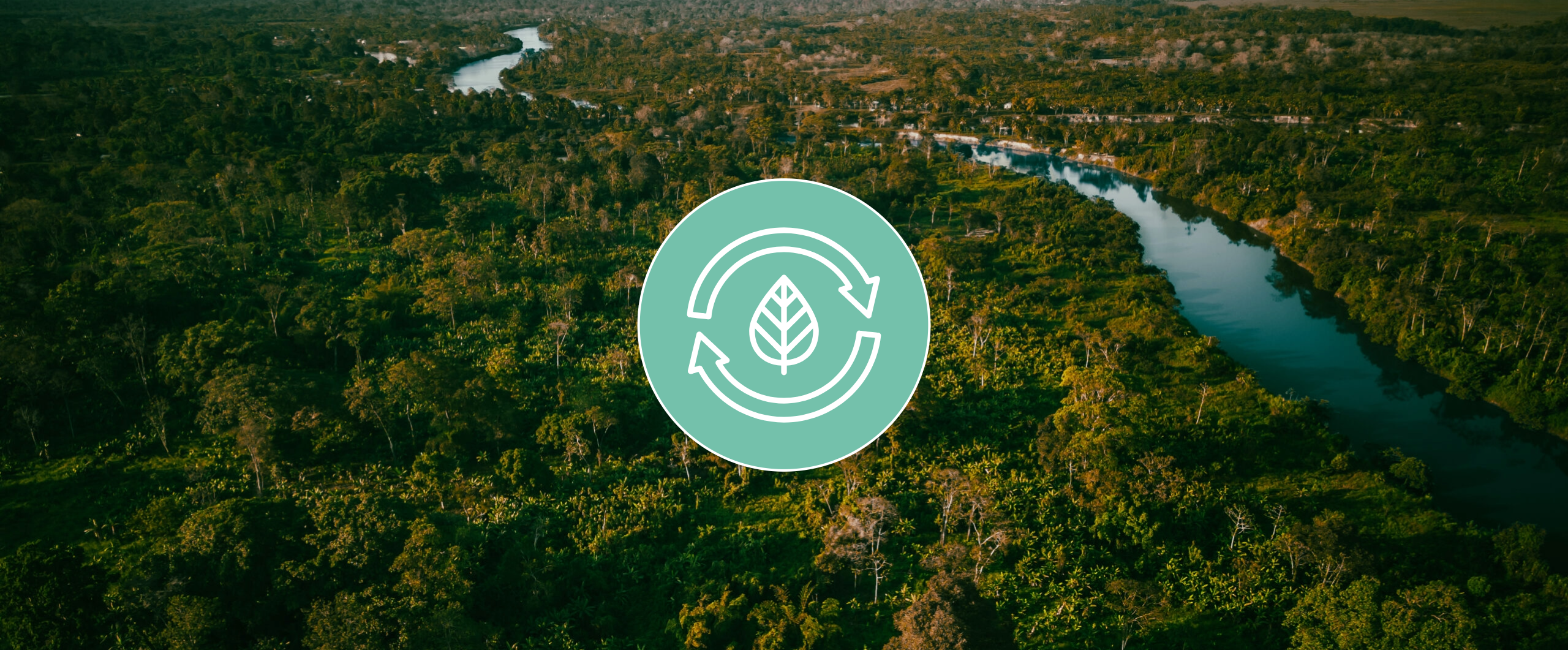Scaling Impact – Plan Vivo CEO Keith Bohannon Discusses Growth and Vision
April 25, 2025
Plan Vivo Foundation is a leading certification system for community and smallholder-led nature-based projects in carbon and biodiversity markets. Plan Vivo ensures that locally driven nature-based projects can access high-integrity carbon and nature finance that is fair, equitable, and directly benefits communities. The organization is one of ZeroMission's longest-term partners. Keith Bohannon is the CEO of Plan Vivo. With a background in the NGO world and as an aerospace engineer, Keith took over the CEO role at Plan Vivo five years ago and has since seen the organization grow exponentially from 3 to 23 people. We caught up with Keith for an interview during his visit to Stockholm at the beginning of April.
Hi Keith! When you took over as CEO for Plan Vivo, what was it that intrigued you with Plan Vivo?
It was really that it’s both climate and the social impact, and also that it was a long-term thing, that it wasn’t three years or five years. This is over 20 years, right? Working on the ground with communities, you can’t really change people’s lives or have a big impact on people in three or five years, but 20 years, that’s different.
Growing with care is something that you talk a lot about as a standard and with the projects. How does Plan Vivo make sure the projects grow with care?
I think there’s room for both growth and sustainability. I think the more holistic approach does work well at small scale, because you can really have time and focus on it. But I think it can be scaled up, as some of our projects like the Trees for Global Benefit project in Uganda, and CommuniTree in Nicaragua have shown. But it takes time and a lot of effort to do it.
I think some larger projects and larger project developers haven’t come to Plan Vivo because they think the model and the requirements is too difficult. They may think that the benefit sharing and the community engagement, [which is embedded in the Plan Vivo standard] is too much and that they won’t be able to do it. But I think that working with communities and small holders, you have to have a holistic approach, it’s not a choice. And if you want to do a successful large scale project with communities, you still have to have that holistic approach. Not doing it because it’s too tough isn’t really a good enough excuse. So, when you see bad news stories about projects in the carbon market that haven’t worked, it often has to do with scale, and that they’ve had to simplify the process to make it easier. That’s where you have problems.
So, the solution is to scale with care and keep the core values?
Yes. Plan Vivo don’t want to just stay small and niche. We want to grow. It’s nice to be small and niche, and it feels safe, but we also feel like we could have a lot more impact by showing that this model can work at scale.
Why do you think Plan Vivo has been so successful these 20+ years that the organisation has been around?
In all fairness, the Plan Vivo model is quite a simple model. It’s not really very innovative or clever. But the carbon market as a whole has kind of gone a different way. A lot of the discussions about challenges around the carbon market and the challenges of making projects work ultimately has to do with them not being grounded in communities. Plan Vivo has a bottom-up approach. It’s a very back-to-basics, simple model of making sure projects are designed with communities, and that they get paid well for the work. They’re partners in the project, rather than beneficiaries in the project. Everybody in the value chain is fair and open with each other too, and that solves most of these big problems. Like I said, it’s not very clever, but it’s just simple.
I sometimes feel like a lot of people hoping for technical solutions to solve climate related issues and, in all fairness, there’s never going to be one blueprint solution to solve climate change. But I wonder if people sometimes may think that nature-based solutions is too simple?
I think there is a tendency for people to think like that. In all fairness, we need all than we have to solve climate change. I think sometimes there’s a huge potential for challenges to drive innovation in a positive way. A lot of the things that were invented were invented because they had to be invented, rather than because it was a cool idea, like an iPhone or something. But actually, sometimes innovation is not necessarily something new. It can just be looking at things in a different way. And I think nature-based solutions are an example of that.
Another factor of this is that there’s a timeliness to this too. We need something now, and urgently. And nature-based solutions are something that we can use right now. But you know, nature-based solutions are also complex, and working with communities and small holders is messy. There are issues that we have to manage, and it takes time. People are messy. Technology is in some ways easier to deal with, and I think because of that technological solutions could be something where people feel “Oh, that could solve our problem easily”. For some corporates, they’re used to addressing a problem in that way. You put money on it, you find a technical solution, and it solves your problem. But in reality, of course it isn’t that simple. The communities that Plan Vivo work with don’t have any finance to address climate change, and that’s why the projects are so important.
Why do you think there is sometimes negative coverage about carbon markets?
I think there’s a few reasons. One is that there have been bad projects in the carbon market historically. So, some of it is legitimate and I think the projects who are not performing well should be called out. Another reason is that I think some of the criticism comes from people who don’t believe in market solutions at all, that think any market solution is exploiting somebody in the global south. They may think that the carbon markets are just another way to exploit local communities. To stop that from happening you need really strong safeguards in place, which I’m confident that we do at Plan Vivo. And then there is yet another angle, which is about people who are more political, who really just see corporate funding going into carbon credits as funding that should be going somewhere else. They might frame it as greenwashing and calling corporates out, but really, what they want is more funding to go into some of their work.
And then there’s big polluters, oil and gas companies, who would rather that the whole carbon markets would be discredited so that they’re not forced into having to invest in them, and that they could continue to get away with not doing anything. So there’s many different angles, and sometimes the criticisms, when you look at them in more detail, they are coming from one of these angles, not always the obvious angle. You might think it’s coming from a form of activism, a more left-wing critique on market-based solutions , but actually it could be coming more from a capitalist side in the end. It’s complicated to try and figure out.

Keith Bohannon, CEO, and Aish Katakam, Carbon Markets Coordinator at Plan Vivo during their visit in Stockholm in april 2025.
Where do you see Plan Vivo in five years from now?
Good question. We already have some staff in East Africa and Latin America, but I see us having more regional presence, and maybe a couple of regional offices so we can be on the ground to support locally-driven projects on local markets as well, working closely with the policy side of the government. So, a more global organizational presence as apart from just projects.
And I can also see us being more of an influencer, moving outside of just certifying projects and being more influential in the space, and getting a platform to our projects and partners to talk about why we think this model is good. I see us being more efficient in that we can deal with more projects. We’ve grown from a small organization to a bigger one, but we’re still small. Developing better internal systems to processes and take on more projects and larger projects will be important. I think we also need to work on raising our profile and be more well known outside of our close network. Stakeholders know who we are and already like our model, being invited to the table with bigger standards, bigger organizations, and that comes a bit with the influence. But yeah, I think having a stronger reputation and maybe more people being aware of Plan Vivo and the projects and the approach is something that we aim for.
Read more about Plan Vivo here.


